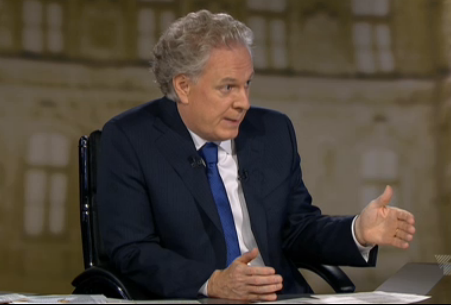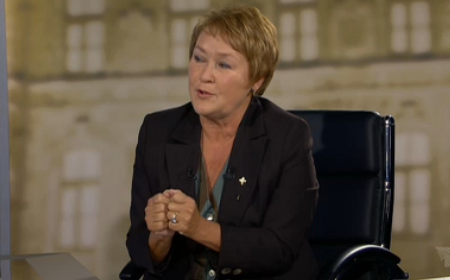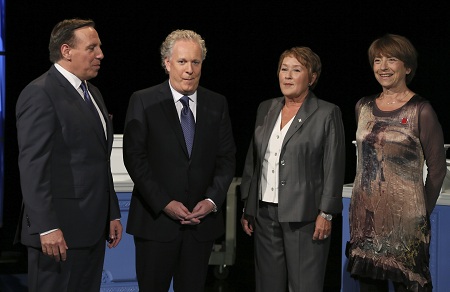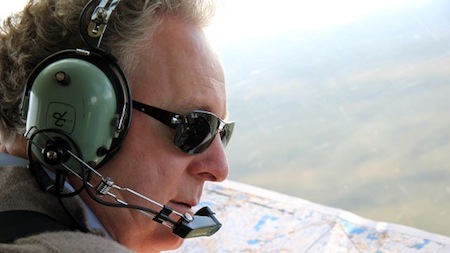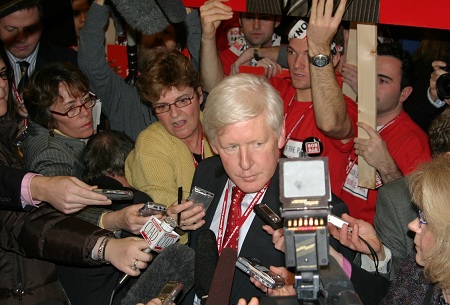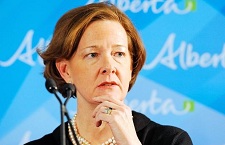I’ll be (hopefully — giving my French quite a test!) live-blogging tonight’s hourlong debate between Québec’s premier since 2003, Jean Charest, the leader of the centrist, federalist Parti libéral du Québec (Liberal Party, or PLQ) and Pauline Marois, the leader of the leftist, sovereigntist Parti québécois (PQ). ![]()
![]()
Last night featured a four-way debate, tomorrow will see a debate between Charest and François Legault, leader of the newly formed Coalition avenir Québec (CAQ), and Wednesday will bring the final debate between Marois and Legault. Québec’s voters go to polls on September 4 to choose 125 members of Québec’s Assemblée nationale
Read Suffragio’s prior coverage of the Québécois election here.
So that was exciting! Jean Charest, so smiley in the Sunday night debate, sneered throughout tonight’s debate. Whether on corruption, on tuition fees, on Plan Nord, on debt, on sovereignty, Charest went on the offensive all night long in a very aggressive manner (“Madame Marois! Madame MAROIS!”).
I’m not sure that will play so well with viewers, but it’s clear there’s no love lost here and that Charest knows he’s behind, and that he’s going to have to fight back against both the PQ and the CAQ in order to win the election.
Marois looked poised and more measured, even when playing offense. But her party still has no clear competing budget plan, and she’s still not being clear on whether she’s seek a referendum if the PQ wins in two weeks.
I’m not sure whether the debate will have changed any minds — Charest looked angry and evasive and aggressive, and Marois still has no answer when it comes to the biggest doubt voters have about her party winning office.
Tomorrow night, we’ll see Charest and Legault — if anything, Charest has been more aggressive in his attacks on Legault in the past week or so, so I think it’s very likely we’ll see the fully adversarial Charest tomorrow as well.
Full live blog below the jump.
* * * * Continue reading Live-blogging the Québec debates: Charest v. Marois
